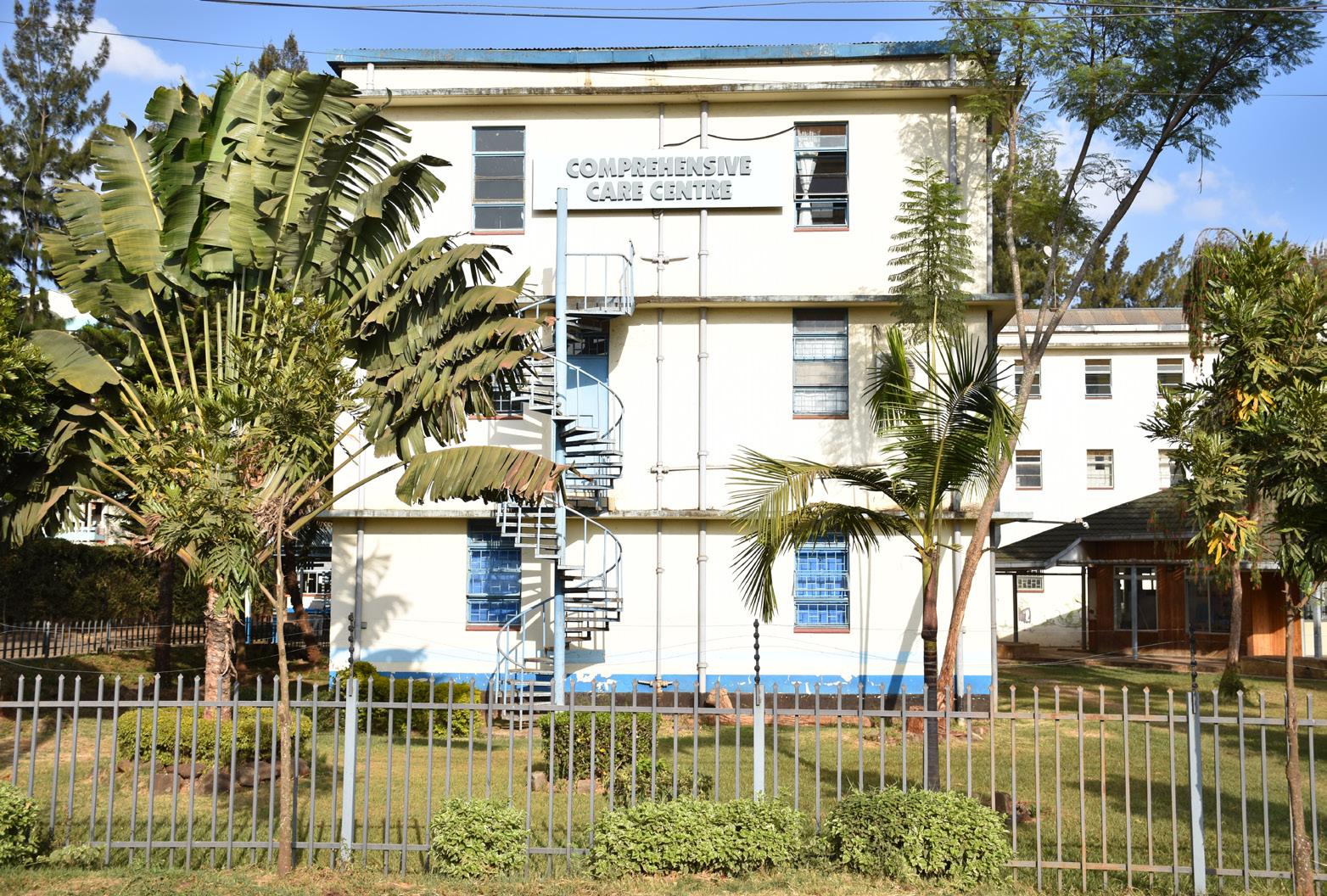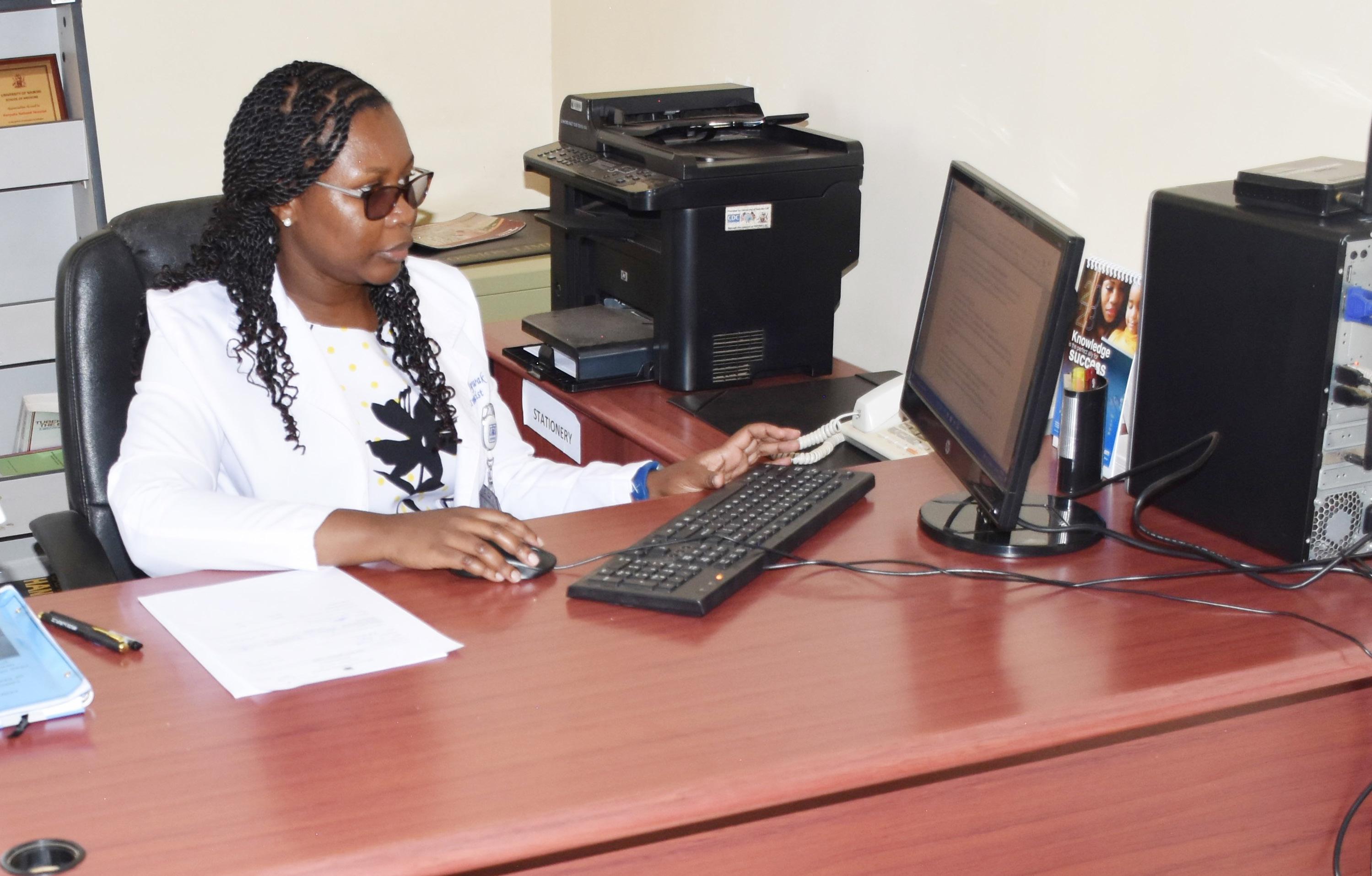
4 minute read
The success story of the KNH Comprehensive Care Centre
A decade of advances in modern technology and extraordinary care in the management of HIV/AIDS in Kenya
By Philip Etyang
Advertisement
It is 05:30 am and already a few people are seen arriving at Kenyatta National Hospital (KNH) Comprehensive Care Centre (CCC). The Centre, which is dedicated to the care and management of HIV/AIDS patients, has been in operation for the last 21 years since its inception in 2002.
The Centre currently serves over 10,000 clients, which constitutes the bulk of those seen in Nairobi. In the early 1990s, KNH was already caring for the largest pool of HIV/AIDS Patients in the country.
Dr. Dorothy Aywak, the Acting Head of the Unit at the CCC, said the facility’s mandate is to provide comprehensive HIV care and treatment services, facilitate HIV/AIDS training and research, and participate in national health planning and policy.
“Implementing a family-centered HIV/AIDS care model- besides linking children and caregivers to relevant services. We host Family Open day that allows us to interact with the clients in a more relaxed setting which enables the provision of psychosocial support,” she said.
As part of the comprehensive services offered at the CCC, they also provide:
• COVID -19and Human Papillomavirus vaccines
• Conduct Non-Communicable Disease screening
• Cervical cancer screening
In the late 1990s, the KNH management started an initiative dubbed “KNH AIDS initiative 2000 and beyond,” a program that helped in the management of the HIV/AIDS pandemic. However, the Hospital management, through the CCC has since then adopted many other strategies to help reduce and control the spread of the virus.
“KNH is leading in the fight against HIV/AIDS through identification of people living with HIV through voluntary testing in the VCT, through provider-initiated testing in the in-patient wards where patients admitted in the wards are tested and through the provision of selftest HIV kits where people can test themselves at home and encouraged to repeat the test in a health facility should they turn positive,” Dr. Aywak maintained, adding; “Through these initiatives, KNH is now rated top among health facilities that diagnose the most people living with HIV. We not only test but also link those who test positive to treatment in our CCC.”
Mr. Isaac Makumi, the Human Resource Administrator at CCC linked the success of the Hospital management’s strategies to reduce the virus through the deployment of CCC staff all around the Hospital.
“Our staff are distributed across the hospital. Because we have the mandate of running the HIV service in this hospital. We have staff at the wards, Casualty, levels 2,4,5,6, and even a sister unit; the HIV Prevention Unit. We have staff at the Youth Centre, Reproductive Clinic, Clinic 66,
GFD, Blood Transmission Unit, and many more other points within the hospital,” he said.
On her part, Dr. Anne Mungai, a pediatrician attached to the CCC and who has seen the Centre grow from inception, said that she is encouraged because the facility has been able to prevent at least 95 percent of patient suppression.
“I have been working here since 2002. The CCC started in the old hospital where the Patient Support Centre is located. The VCT had already been established and of course, there was a gap in care for those who tested positive, especially among our KNH staff. When that clinic was established primarily it was a KNH clinic for their staff,” Dr. Mungai said.
She revealed that initially, CCC used to source drugs for staff members only, but then later they opened up to the rest of the public.
“In 2003, a government-sponsored program came into place and we started getting a lot of training which formed our basis for starting other CCCs in other counties. With the support of the National AIDS/STD Control Program, we train very many people even within the Hospital and outside,” Dr. Mungai revealed.

The CCC at KNH has also proven beyond doubt that they are a first among many. The Centre was an early adopter of the Electronic Medical Records (EMR) system.
“Early adopters of the EMR system. The clinic initially moved to electronic records with the rest of the Hospital just recently began the journey of moving to electronic medical records and we look forward to the integration of the same and enhanced patient management,” Dr. Aywak said.

The CCC also was the first to pilot the Queue Management System, before the rest of the hospital adopted it. The system is patientcentered where patients pick a number to be called out before being seen.
“We are first in many things at the Hospital. For example, the Queue Management System started here. It was benchmarked here, even the Electronic Medical Records (EMR). We started in 2004 and are purely paperless within the clinic. We have eliminated paper within our sites. Our staff carry tablets which they can access the EMR,” Mr. Makumi added.
The CCC is also host to the Nairobi County HIV Technical Working group, a group of specialists drawn from Nairobi County. The vibrant cases in the clinic and from Nairobi County.
“In light of this, the success of CCC is attributed to the team of committed staff deployed at the unit. Isaac Makumi our Human Resource Administrator is the metaphorical linchpin as he keeps all our gears turning, he has been working at the unit since 2010,” Dr. Aywak said.
Dr. Ann Mungai deserves special mention, Dr. Aywak said because of her longstanding commitment to the Centre since its establishment back in 2002. Dr. Wangui Kamau from Pediatrics and the CCC lead on Care and Treatment as well as the Continuous Quality Improvement CQI initiatives as being one of the pillars for their success.
“Other staff members that have shown great commitment to their work at the CCC are Mr. John M and Ms. Brenda; who have been complimented several times by clients. Without the diligence and commitment demonstrated by all the staff here, there would be no success to speak of. No one can whistle a symphony. It takes a whole orchestra to play it,” she concluded.

